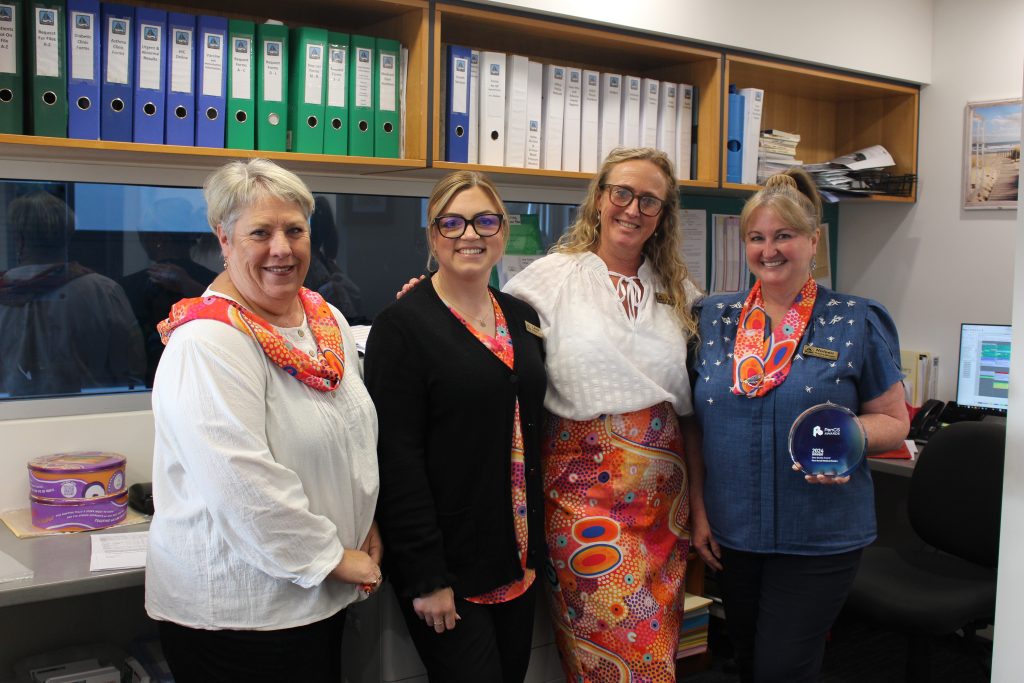Harnessing the power of health data
Posted on August 8, 2025

How one general practice is improving community health through smart systems
For many general practices, keeping up with patient care while managing administrative demands is a constant challenge.
But for Port Sorell Medical Centre’s practice manager, Noleen Davey, harnessing the power of data has become a game-changer—not just for the practice, but for the entire community.
Recently, the practice received national recognition with the 2024 PenCS Award for Excellence in Data-Driven Quality Improvement, celebrating its innovative approach to patient care.
For Noleen, the award is just the tip of the iceberg.
“This was a team effort,” Noleen says. “Yes, I used Pen CAT and Practice Cloud to extract data and identify gaps, but it was our staff who put in the hard yards. They’re the ones making sure our patients are getting what they need.”
The journey began with a quality improvement project focusing on childhood immunisation rates. As part of a broader initiative with Primary Health Tasmania, the practice began analysing data on vaccination gaps in children aged 0-5 years.
What started as a focused project soon expanded into a full-scale data cleansing initiative.
“We realised it wasn’t just our under-fives—there were gaps in vaccinations for older children and even adults,” Noleen says.
By systematically reviewing records, cross-referencing with the Australian Immunisation Register, and reaching out to parents, the team ensured children who had missed vaccinations were identified and offered catch-up schedules.
And it didn’t stop there.
“Once we tackled childhood immunisation, we thought—what else can we clean up? We moved on to cancer screenings, cervical screenings, and bowel screenings,” Noleen says.
With every step, the practice refined its approach, integrating real-time data extraction to ensure patient records were as accurate and complete as possible.
By embedding data integrity into everyday workflows, the practice has created a system where:
- new patients undergo a full data review upon joining, ensuring accurate immunisation and screening records from day one
- patients due for cancer screening are identified and recalled in a timely manner
- preventive health measures—such as flu, whooping cough, and the new RSV (respiratory syncytial virus) vaccine for pregnant women—are offered to eligible patients.
The impact has been immediate.
“Parents have been really appreciative when we reach out about missed vaccines,” Noleen says. “They often had no idea their child was behind, and they’re relieved to be able to catch up.”
For Noleen, the key to success has been team buy-in and a culture of continuous improvement.
“You can’t clean up a whole database overnight, but you can start small,” she says.
Her approach? Breaking the work into manageable tasks, ensuring every nurse and doctor plays a role.
“If a nurse has 10 spare minutes, they check two patient records. It’s not overwhelming, and over time, it adds up.”
Throughout the process, Noleen credits Primary Health Tasmania team member Kathy Lowry for her ongoing support.
“Kathy is incredible—she plants ideas, feeds our minds, and helps us grow those ideas into real, tangible improvements for our patients,” she says.
Primary Health Tasmania provides data analysis support, training, and resources, ensuring general practices like Port Sorell Medical Centre can harness data for better patient care.
Eliza Taylor manages a team of Primary Health Tasmania staff, including Kathy, who are dedicated to supporting primary care practices in their continuous improvement of patient care.
“Our team is instrumental in nurturing the growth of quality improvement initiatives within general practices,” Eliza says.
“They provide tailored support, from strategic planning to hands-on training, ensuring practices not only understand their data but can also effectively use it to drive meaningful change and enhance patient outcomes.”
She says supporting data-driven change is an important part of their role.
“We help practices interpret and apply their data effectively—embedding quality improvement into daily workflows and strengthening systems for population health management,” Eliza says.
Port Sorell Medical Centre’s commitment to data-driven quality improvement hasn’t gone unnoticed. Its PenCS Award submission has even been used as a national case study, inspiring other practices across Australia.
And while the award is an honour, for Noleen and her team the real reward is knowing they’re delivering better healthcare outcomes for their community.
“It’s about making sure we’re identifying what patients need – not just what they ask for,” Noleen says.
This story features in Issue 20 of our Primary Health Matters magazine. Click here to read the rest of the issue.
